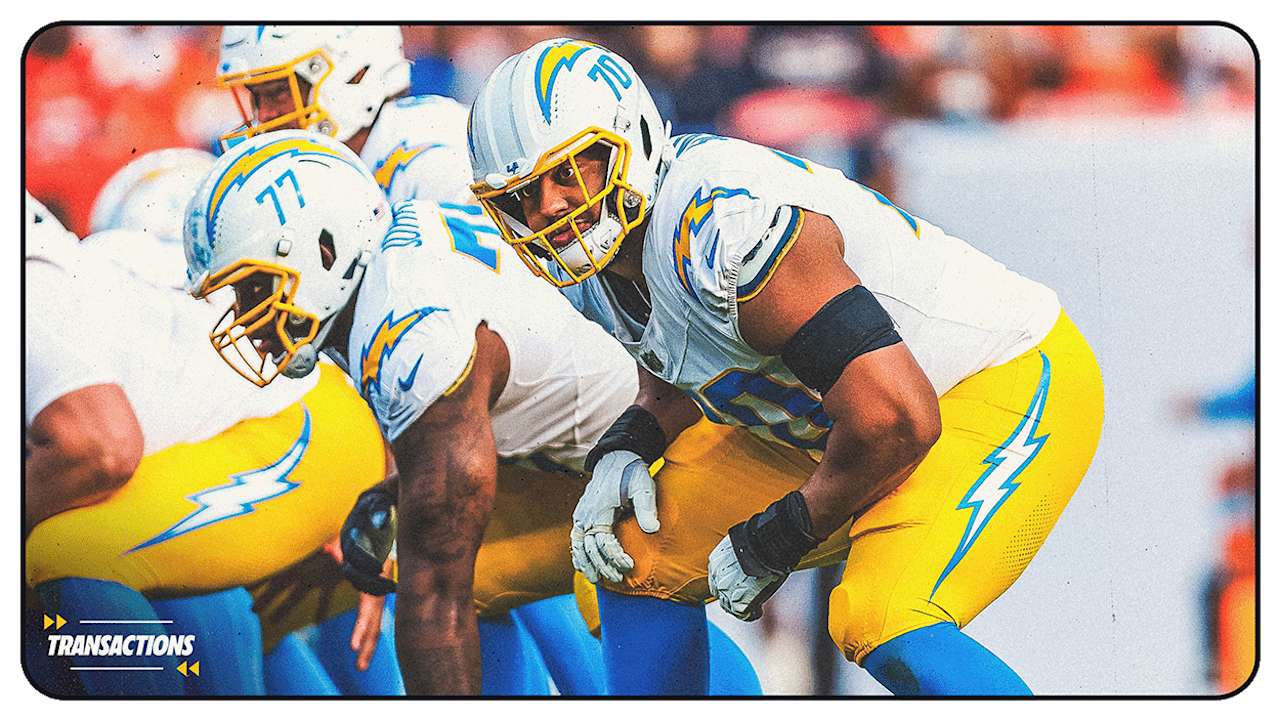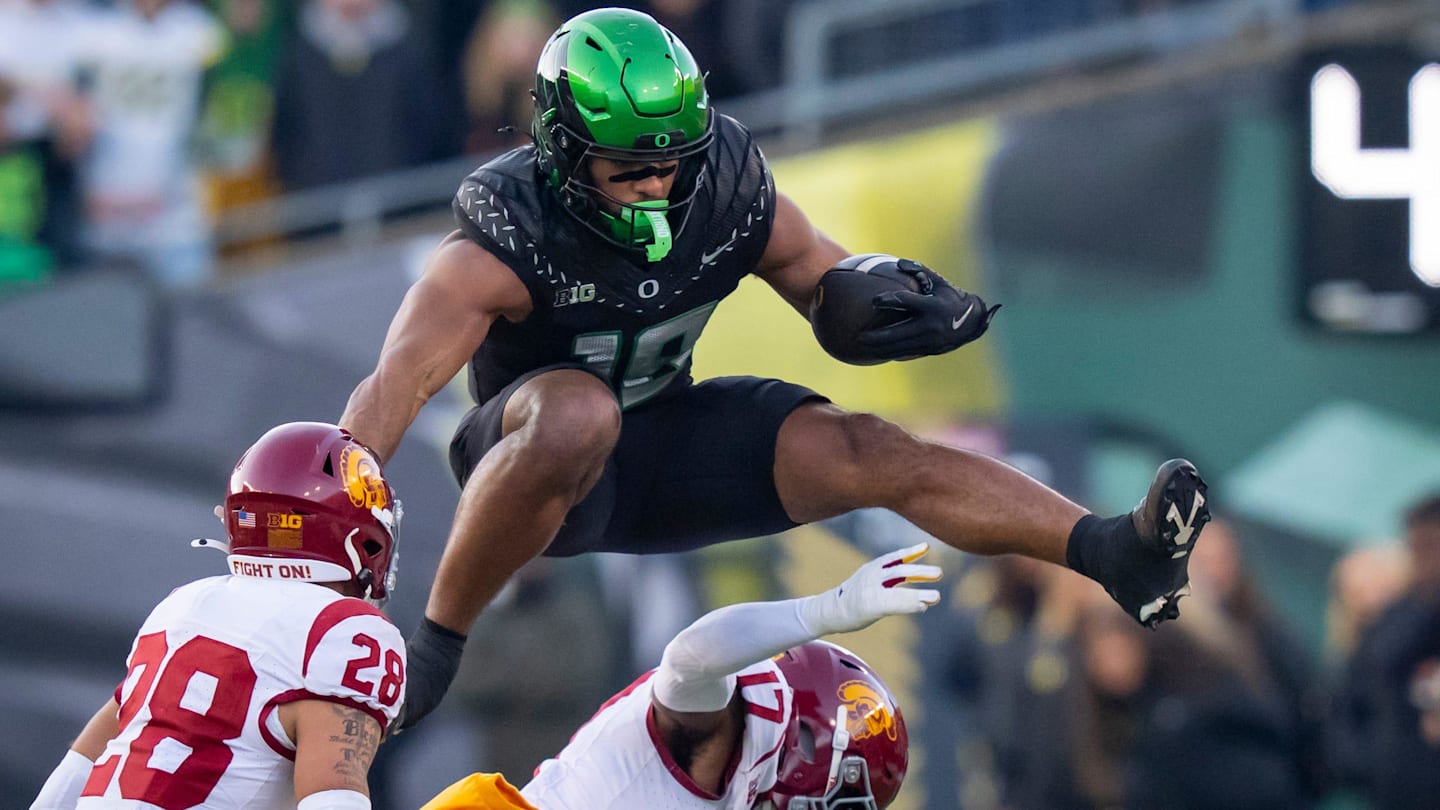Chargers Secure Future with Rashawn Slater Extension

Introduction
The Los Angeles Chargers have made a major move in securing their offensive line for the future with the signing of Rashawn Slater to a multi-year contract extension. The talented tackle has been a standout player since his rookie season, and this new deal is a testament to his skill and potential.
Key Details
Slater's impressive performance on the field has not gone unnoticed. In his first season, he started all 16 games and was named to the All-Rookie Team. His consistency and versatility have been a major asset to the Chargers' offense, and this new contract extension solidifies his role as a key player for years to come.
The agreement between Slater and the Chargers is worth a reported $33.6 million, with $16.6 million guaranteed. This not only shows the team's commitment to the player, but also their confidence in his ability to continue to excel on the field.
Impact
This contract extension is not only a win for the Chargers, but also for Slater. It not only secures his future with the team, but also serves as a reflection of his hard work and dedication. In a league where players are constantly fighting for their spot, this deal is a major achievement for the young tackle.
As for the Chargers, this move further solidifies their commitment to building a strong and competitive
About the People Mentioned
Rashawn Slater
Rashawn Slater is an **American professional football offensive tackle** for the Los Angeles Chargers of the National Football League.[1] Born March 26, 1999, the 6'4", 315-pound lineman has established himself as one of the league's premier pass protectors since entering the NFL.[1][5] Slater played college football at Northwestern University, where he demonstrated exceptional versatility and technique across three seasons.[1] As a true freshman in 2017, he started all 12 games at right tackle and earned recognition as the top freshman offensive lineman in the nation by Pro Football Focus.[1][4] He was named to the Big Ten Conference All-Freshman Team.[4] In his sophomore year, he started all 14 games at right tackle and received third-team All-Big Ten honors from league coaches.[1][4] As a junior in 2019, Slater moved to left tackle and started 11 games while allowing zero sacks, demonstrating elite pass protection skills.[1][4] He opted out of the 2020 season before entering the 2021 NFL Draft.[3] The Los Angeles Chargers selected Slater with the 13th overall pick in the first round of the 2021 NFL Draft.[1] He immediately made an impact as a rookie, starting at left tackle and earning Pro Bowl selection and All-Rookie Team honors.[1] Despite a biceps tendon injury that ended his 2022 season, Slater returned to start all 17 games in 2023 and 15 games in 2024.[1] In July 2025, Slater signed a significant four-year, $114 million contract extension with the Chargers, securing his future through the 2029 season.[1] However, his 2025 season ended prematurely when he suffered a torn patellar tendon during practice in August 2025, resulting in him missing the entire season.[1] Slater currently remains under contract with the Chargers as a cornerstone piece of their offensive line.
About the Organizations Mentioned
Los Angeles Chargers
The Los Angeles Chargers are a professional American football team competing in the National Football League (NFL). Founded in 1960 as part of the American Football League (AFL), they originally played in Los Angeles before relocating to San Diego in 1961 and then returning to Los Angeles in 2017. Currently, they play their home games at the state-of-the-art SoFi Stadium, a modern venue reflecting the organization's connection to technology and innovation[1][4]. The Chargers have a rich history marked by notable players and achievements. Key figures include LaDainian Tomlinson, the Hall of Fame running back drafted in 2001, who set NFL single-season touchdown records and became the franchise's all-time leader in rushing yards and touchdowns. Another cornerstone was tight end Antonio Gates, regarded as one of the best in his position with multiple All-Pro selections and team receiving records. Quarterback Philip Rivers, who led the team from 2006 to 2019, ranks among the NFL's all-time leaders in passing yards and touchdowns. More recently, young quarterback Justin Herbert has emerged as a star, setting rookie passing records and signaling a new era for the franchise[1]. In the 2025 NFL season, the Chargers hold a competitive record, standing second in the AFC West with a 5-3 overall performance. They rank highly in passing offense (3rd) and overall offense (3rd), reflecting strong tactical execution and player development. The team employs a Base 3-4 defensive scheme and maintains a deep and versatile roster, highlighting their strategic and organizational adaptability[2][3]. Off the field, the Chargers engage in community and sustainability initiatives, partnering with local organizations to promote recycling and environmental responsibility in Los Angeles. Their operations also emphasize scouting and developing undrafted free agents, underscoring a forward-thinking approach to talent acquisition and team building[4]. Overall, the Los Angeles Chargers combine a storied legacy with a modern, tech-savv
NFL
## Overview of the NFL The National Football League (NFL) is the preeminent professional American football organization in the United States, renowned for its massive influence on sports, entertainment, and business. With 32 teams divided between the American Football Conference (AFC) and National Football Conference (NFC), the NFL organizes a 17-game regular season culminating in a single-elimination playoff and the Super Bowl—the most-watched annual sporting event in the U.S.[2] ## History and Evolution Founded in 1920 as the American Professional Football Association (APFA) in Canton, Ohio, the league initially comprised teams primarily from the Midwest and Northeast[1][3]. It was renamed the National Football League in 1922 and faced early instability, surviving competition from rival leagues such as the All-America Football Conference (AAFC) and multiple iterations of the American Football League (AFL)[2]. By the 1950s, the NFL had established a monopoly on professional football in the U.S., with only the Canadian Football League (CFL) operating independently in Canada[2]. The most significant development in NFL history was the 1966 merger agreement with the AFL, which led to a common draft and the creation of the Super Bowl as a championship game between the two league champions[1][2]. The leagues fully merged in 1970, reorganizing into the AFC and NFC and cementing the NFL’s dominance in American professional sports[1][2]. ## Key Achievements and Innovations The NFL pioneered lucrative television contracts, transforming football into a national pastime and a major media event. The league’s adoption of revenue-sharing and salary caps fostered competitive balance, helping small-market teams remain viable[2]. The NFL has also been a leader in sports technology, implementing instant replay, advanced player tracking, and digital platforms for fan engagement. Notable achievements include the expansion to 32 teams, the internationalization of the game through game















